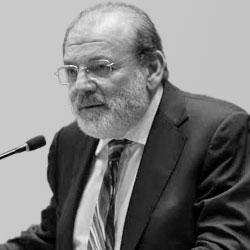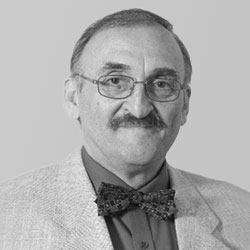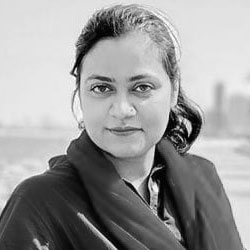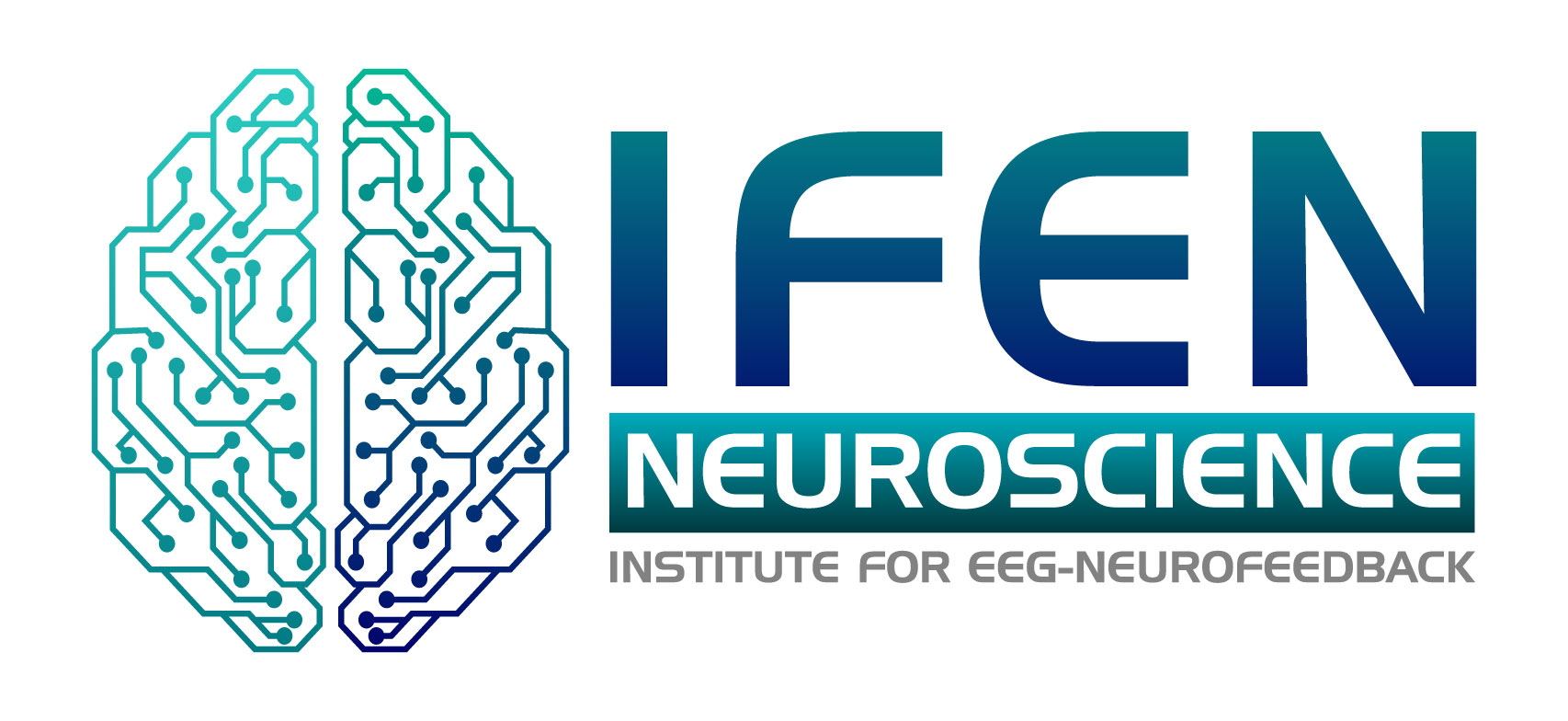Clinical-Scientific Advisory Board
Our Clinical Scientific Advisory Board consists of recognised experts in the neurofeedback field. They all contribute their individual expertise and experience to drive ongoing research and development in the field of EEG neurofeedback.

Prof. Giuseppe Chiarenza
Prof. Giuseppe Chiarenza is a well-known name in neuroscience. His work has contributed significantly to the understanding of brain structure and function. He has published numerous articles in prestigious journals and is a sought-after speaker at international conferences.
He is currently President of the International Centre for Learning, Attention and Hyperactivity Disorders (CIDAAI) in Milan - President of the International Organisation for Psychophysiology, Health Director of the Bionatural Detoxification Center (CDB) of the Eris Onlus Foundation. The International Alliance for Biofeedback Certifications (BCIA) has awarded Dr Giuseppe Chiarenza the certification of therapist, lecturer and supervisor of therapy with neurofeedback.
» read more
He taught at the University of Milan and the Catholic University of Piacenza, Faculty of Educational Sciences. Former President of the Psychoneurobiology Section of the World Psychiatric Association, former Vice-President of the Italian Society of Neuropsychiatry for Children (SINPIA).
www.giuseppechiarenza.it

Dr Christoph Garner
Dr Christoph Garner brings decades of experience in the application of neurofeedback in clinical settings. He has a particular focus on the treatment of ADHD and sleep disorders. He is a dedicated advocate of this technology and has helped to promote its use and acceptance.
Vita of Dr Christoph Garner
Dr Garner was born in Munich in 1949 and completed his Abitur and medical studies in Munich from 1976 to 1982. From 1982, he worked at the University Hospital Großhadern and later became a medical specialist. From 1992 to 2017, Garner was head physician at the KWA Klinik Stift Rottal.
» read more
Dr Garner enjoys a reputation as a mediator between classical orthodox medicine and alternative medicine, which is based, among other things, on his enthusiasm for India. At the KWA Klinik Stift Rottal, Garner therefore initiated cooperation projects with Indian partners such as the Vivekananda University (Bangalore) or the Ayushakti Centre (Mumbay) from the 1990s onwards.
In addition, he introduced a programme at the KWA Clinic that is especially dedicated to children with spastic paralysis, stroke patients and patients with craniocerebral trauma, the so-called therapy concept according to Petö.
Recently, Dr. Garner and the KWA Clinic have been in close exchange with the Institute for EEG Neurofeedback. Garner is a proven EEG expert who, together with Thomas F. Feiner, will organise special QEEG-EEG courses at the clinic in the future.
1949 born in Munich
1969-1976 Studied law and economics at the University of Munich
1976-1982 Studied human medicine at the University of Munich
1983- 1991 Training as a neurologist at Munich University Hospital
1984 Dissertation on "Renal excretion of digoxin in humans
1992-2017 Medical Director of the KWA Klinik Stift Rottal Bad Griesbach
1996 Introduction of yoga therapy in cooperation with the SVYASA Yoga University at the KWA Klinik Stift Rottal
1993-1996 Additional qualifications in "Physical Medicine", "Homeopathy" and "Geriatrics
Board member of the Bavarian Society for Brain Trauma and Stroke Patients
Treasurer of the Bavarian Society of Clinical Geriatricians
Member of the German Society of Neurologists
Member of the German Society for Neurological Rehabilitation

Dr Laura Maffongelli
Dr Laura Maffongelli is a leading expert in cognitive neuroscience. Her research focuses on the interactions between the brain and behaviour, particularly in the context of learning and memory processes. She is also an experienced lecturer and has taught numerous students in basic and advanced topics in neuroscience.
Dr Laura Maffongelli graduated in neurolinguistics from Philipps University Marburg in 2011. Shortly after, she moved back to her home country, where she completed her PhD in Cognitive Science at the University of Genoa (Italian Institute of Technology, Italy) in 2015. Since then, her research interests have focused on the relationship between language and action in terms of the syntactic mechanisms involved.
» read more
She investigated the neurophysiological basis of processing complex action sequences during action observation, first in adults (Robotic, Brain and Cognitive Sciences (RBCS) at the Istituto Italiano di Tecnologia, 2012-2015) and later in infants (PostDoc at the University of Zurich, Department of Developmental Psychology, 2015-2017). Furthermore, she worked at the Scene Grammar Lab at Goethe University Frankfurt, where she researched "scene grammar" in relation to syntax (2018-2019).
Currently, she is conducting research at Johannes Gutenberg University Mainz, where she is investigating the processing of various complex, hierarchical structures in the language and action domain in preschool children. EEG (ERPs), eye tracking and TMS measurements are the basic methods of her research. She is interested in the extent to which the processing of complex action sequences shows similarities to the processing of complex sentences. Her results point to precisely this connection. A change in the structure of an action, the action syntax, leads - already in children as young as 6 months - to similar reactions in the electroencephalogram (EEG) as a comparable violation of the syntax of a sentence heard or read. This also allows conclusions to be drawn about the language development of infants.

Dr Ruben Perez Elvira
Dr Ruben Perez Elvira has a background in clinical psychology and specialises in the use of neurofeedback for mental disorders. His work helped show the potential of this technology to treat conditions such as depression and anxiety.
Neuropsicología
Clinical Neuropsychology and Directorate in Nepsa Rehabilitación Neurológica, Salamanca, Spain.
Certified Neurofeedback Therapist - Terapeuta Neurofeedback IFEN
» read more
-
09/2003-09/2008 Studies at the Faculty of Psychology, University of Salamanca, Spain
-
Practical year 03/2007-05/2007 Hospital Virgen del Puerto, Plasencia, Spain
-
02/2009-05/2010 Clinical Neuropsychology, University Pablo de Olavide of Seville, Spain
-
Practical year 08/2009-08/2010 Neuroclínica Berenguer, Badajoz, Spain
-
since 09/2010 Doctorate, U.N.E.D, Spain
PRACTICAL EXPERIENCE
-
2009 - 08. 2012 - Clinical neuropsychology in different clinics in Spain. Clinics in Spain
-
since 08. 2012 - Clinical Neuropsychology and Direction in Nepsa Rehabilitación Neurológica, Salamanca, Spain
PUBLICATIONS
Neuropsicología de la Esclerosis Múltiple: Revista Electrónica de Psicología Científica (REPC).
Neuropsicología Forense y Nuevas Tecnologías: A propósito de un caso de Paraplejia Psicógena..: comunicación que será presentada en el III Congreso de la Federación de Asociaciones de Neuropsicología en España (FANPSE) November 2010, Oviedo, España.
Aumento de peso y variables afectivas en Anorexia Nerviosa. Una aproximación neuropsicológica: comunicación que será presentada en el III Congreso de la Federación de Asociaciones de Neuropsicología en España (FANPSE) November 2010, Oviedo, España.
Eficacia de la intervención cognitiva en el deterioro cognitivo leve amnésico. Diferencias test-retest con enfermedad de Alzheimer I Encuentro de Investigadores: "Investigación y Envejecimiento", Salamana, December, 2013.

Dr Ismael J. Castillo-Reyes
Meet Ismael J Castillo Reyes, an integral member of the Neuro-Cognitive Research Lab at Ponce Health Sciences University, located in the vibrant city of Ponce, Puerto Rico. With a steadfast commitment to advancing the fields of Neurofeedback, Quantitative Electroencephalography (QEEG), and Event-related Potentials, Ismael is currently engrossed in a pivotal pilot project titled "Z-Score sLORETA Neurofeedback for Stroke and TBI Rehabilitation in a Sample of Puerto Rican Patients".
» read more
Disciplines
Neuropsychology
Emotion
Cognitive Psychology
Skills and Expertise
Cognitive Neuroscience
Affective Neuroscience
EEG (Electroencephalography)
Cognitive Psychology
QEEG
Neurofeedback
Languages Proficiency
Spanish
English
Engagement on ResearchGate
Contributions: 13 Research ItemsInteractive Participation: Open for Questions and Collaborative Discussions
Ismael's extensive research and dedicated expertise are pivotal in paving innovative pathways in neurocognitive explorations and therapeutic approaches. Feel free to explore his diverse array of contributions and engage in enriching discussions on ResearchGate.

Dr Ayesha Ikhaq
Dr. Ikhlaq is an esteemed researcher from the University of Pakistan, who has demonstrated her dedication and commitment to neurofeedback research.
Her primary area of research delves into the fascinating realm of Heartbeat Evoked Potentials (HEPs) and Event-Related Potentials (ERPs). She is at the forefront of uncovering the intricate interactions between the heart and the brain, pushing the boundaries of our understanding in this critical field. Her work has the potential to lead to innovative approaches in diagnosing and treating various brain diseases.
» read more
Dr. Ikhlaq's interest in joining the Institute for EEG-Neurofeedback stems from her admiration for the groundbreaking work carried out by our team. She shares our commitment to advancing research in the field of neurofeedback, making her an ideal fit for our board.
Her expertise in HEPs and ERPs, coupled with her aspiration to push the boundaries of heart-brain interactions, make Dr. Ikhlaq an invaluable asset to our advisory board. We look forward to her contributions and are confident that together, we can continue to advance research in our shared field.
